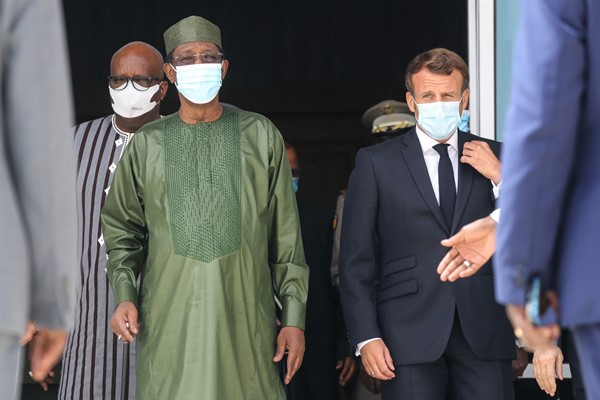When Idriss Deby first became president of Chad in 1990, deposing the notoriously brutal Hissene Habre in an armed rebellion, few observers expected his rule to last very long. The landlocked Central African country is deeply fragmented, with myriad ethnic groups and clans vying for power against each other. But against all odds, Deby has remained in power for 30 years, thanks in large part to his political cunning, his prowess as a military tactician and his use of oil revenues to build patronage networks and coopt political opponents.
Under Deby, Chad has also taken on an important role in regional security initiatives, including the French counterinsurgency effort to stabilize the Sahel region that has been ongoing since 2014. Known as Operation Barkhane, it has its headquarters in Ndjamena, Chad’s capital. As a result, Deby has cultivated considerable loyalty from officials in Paris and, to a lesser extent, in Washington. Last year, the French military even prevented a coup against Deby by bombing a convoy of armed rebels that was headed toward Ndjamena.
Following a constitutional reform in 2018 that expanded his powers, Deby could stay in office until 2033. On the Trend Lines podcast this week, WPR’s Elliot Waldman was joined by Michael Shurkin, a senior political scientist at the RAND Corporation, to discuss the longevity of Deby’s rule, his role in regional security and his enduring support from the West.

